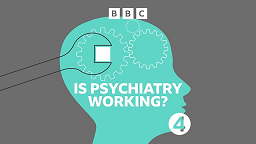In this interview, published on Mad in America (and relating more to an American context), Richard Sears talks to psychiatrist and anthropologist Helena Hansen about bringing structural competency to psychiatry while rebuilding communities through activism and mutual aid.
Here is an extract:
“… Sears: Can you talk a bit about how race, class, gender, etc., can affect psychiatric diagnosis?
Hansen: I’ll try to answer it from two different angles.
The first is a bit more intuitive. I was a psychiatry resident at NYU in 2005 and trained in Bellevue hospital, which was New York City’s largest public hospital. It takes people from all over the city and has historically been known for its psychiatric care. Many of the patients were on Medicaid or uninsured. We would get people from the homeless shelters. We would get people from low-income areas in the South Bronx, Harlem. We got new immigrants looking for mental health care. We got people from all over.
The very high-end New York University (NYU) Langone Hospital was just three blocks up the street. It accepts private insurance on the psychiatric unit. A lot of the patients we saw there were sons and daughters of psychiatrists, doctors, lawyers, celebrities, etc.
What really struck many of my classmates in our psychiatry training and me was the contrast between how we saw people treated at the exclusive NYU hospital and how we saw people treated at Bellevue. We saw people who would come in with very similar symptoms but get radically different diagnoses.
The reason for that radical difference was really the life circumstance and the goals of “care.” For example, somebody comes into Bellevue with mood symptoms, with hallucinations. Let’s say they’re coming from the homeless shelter or they’re unemployed or uninsured. We would really steer them towards a schizophrenia diagnosis.
At Bellevue, because it was so understaffed, a lot of times, what was used to treat schizophrenia would be highly sedating antipsychotics like Zyprexa. The purpose was to keep people quiet because we’re dealing with an overcrowded and understaffed ward. These medications come with some serious side effects (including weight gain, diabetes, and heart disease). Still, we used the diagnosis because it was easier for people to get Social Security if they had a schizophrenia diagnosis. It was well-intentioned …”
You can read the full interview – and/or listen to the original audio podcast version – from here.



